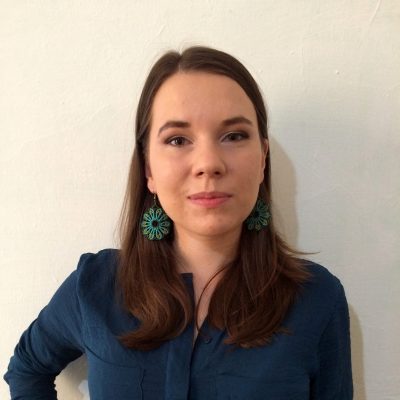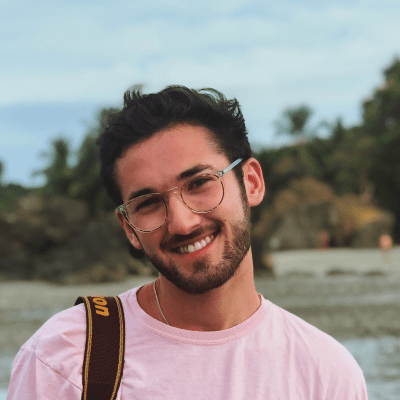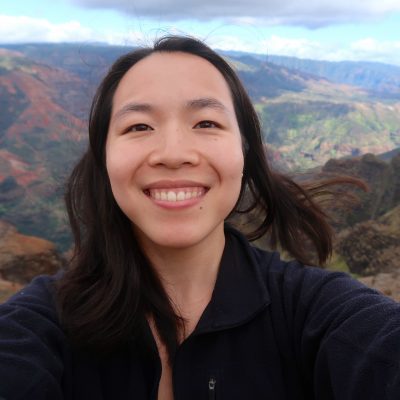Details
Article
During the 2019 Warsaw Fellowship program, Fellows wrote a brief article on the topic of their choosing in response to one or more of the activities/speakers during the program. Pieces written by these fellows represent their individual opinions.
“I set my bow in the clouds to serve as a sign of the covenant between me and the earth” said God to Noah, when the rainbow first appeared on the sky after the Deluge. If he had done that in today’s Poland, he would have probably been accused of “homopropaganda”, at least by some members of the Roman catholic hierarchy. Because of its similarities with the seven colours of the LGBTI+ flag, the rainbow has become a source of never-ending controversy, of which the burning of the rainbow installation at Zbawiciela Square and the scandal around Madonna of Częstochowa with the rainbow halo are just two examples. This symbolic war is also symptomatic for modern Polish society, where different values and points of view are constantly clashing with one another. In order to fully understand this complex problem the tenth day of our fellowship was devoted to the issues around the LGBTIAP community in Poland.
In the first session we met with Gosia Kot, a Board Member at Campaign Against Homophobia, who gave us a comprehensive introduction to this topic. At first we looked at the situation from a legal perspective and compared the LGBTIAP-related regulations such as marriage equality, the right to adopt and anti-discrimination laws in all the represented countries. Soon it became very clear that Poland and Ukraine are the only countries that do not offer their queer citizens any form of legal protection and relationships’ recognition.
“We don’t need your permission” concluded Małgorzata, responding indirectly to all the bishops and politicians, who think that they can decide, what “family” actually means.
However, some of the fellows from more “progressive” countries such as the USA and Germany also pointed out that marriage equality is not the end of the road and it’s often been instrumentalized by politicians to cover other problematic issues. Nevertheless, lack of regulations remains one of the main problem of the Polish LGBTIAP community and has a huge influence on the daily life of its members. For example queer parents – our next topic – have to deal with thousands of obstacles that heteronormative couples would not even think about. How to become a parent, when you are not allowed to adopt or have in vitro procedure? How to deal with the situation when only one of the parents is recognized by the law? And last but not least, how will various institutions, including hospitals, kindergarten and family of origin, react to an “atypical” family? Despite all those potential difficulties, queer families are much more common than most people think: it is estimated that about 50 thousand children are raised by queer parents in today’s Poland. “We don’t need your permission” concluded Małgorzata, responding indirectly to all the bishops and politicians, who think that they can decide, what “family” actually means.
I hope that one day the rainbow will again become the symbol of the covenant, but this time not only between God and men, but also between people.
The second section was dedicated to the question of conflicting values, especially between religion and sexual orientation. According to Misza Czerniak, a member of Faith and Rainbow Foundation, which brings together Christian members of the LGBTIAP community, those two identities are in fact not mutually exclusive. On the basis of his personal experience as a gay man from Russia, who tried to deny his sexuality and even got married, Misza explained the religious beliefs that once trapped him, eventually helped him to come to terms with his sexual orientation, when he understood that God did not want him to suffer. Accepting both of his identities, he now tries to change Christianity from within. But it’s not always easy. “If you are in the middle, you’ll be kicked by both sides” said Misza, indicating that he gets a lot of criticism from both the religious and queer communities. The debate was especially heated after the famous campaign “Let us offer each other the sign of peace”, which was developed together with some of the more progressive Catholic media, but caused a huge backlash from the conservatives. Still he plans to continue this course and put himself on the front line until he will be pushed out of his Church or die.
Misza’s dedication to his cause made me realize that although the members of the LGBTIAP community may have different religious beliefs, values and points of view, there is one common goal that we all share: the creation of a society, where everybody is equal no matter their religion, sexual orientation or any other factors. I hope that one day the rainbow will again become the symbol of the covenant, but this time not only between God and men, but also between people.





